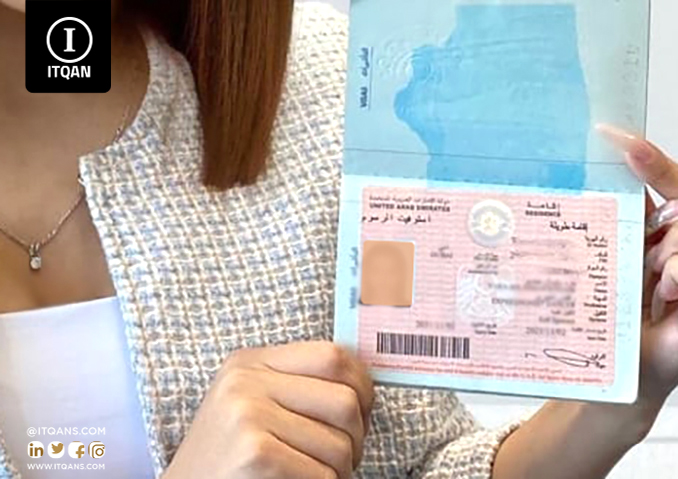In light of the economic expansion and rapid growth witnessed by the United Arab Emirates, the country has become one of the most prominent global destinations for investment. What enhances the UAE’s attractiveness as an investment destination is the stable economic environment, advanced infrastructure, and encouraging government policies that seek to support and enhance investment opportunities. But before moving towards investment, it is necessary to understand the roles and tasks carried out by the government agencies responsible for investment in the Emirates , as these agencies play a vital role in organizing, facilitating, and promoting investment in various sectors.
What are the government agencies responsible for investment in the UAE? Responsibilities for organizing and supporting investment are distributed among a group of major government bodies that work in an integrated manner to ensure the provision of a suitable and encouraging investment environment. Among these bodies, the Ministry of Economy is considered the primary body concerned with developing economic policies and promoting foreign and local investments through multiple programs and initiatives. In addition, economic bodies in each emirate play a pivotal role, such as the Department of Economic Development in Dubai and the Department of Economic Development in Abu Dhabi, as these departments focus on facilitating licensing procedures and providing support to investors.
Free zones in the Emirates are also managed by bodies such as the Dubai Investment Authority and the General Investment Authority in Abu Dhabi. These zones provide benefits such as tax exemptions and customs facilities, which enhances the UAE’s attractiveness as a global investment center. Knowing the role of these government agencies is crucial for any investor looking to take advantage of the vast investment opportunities that the UAE offers.

What are the government agencies responsible for investment in the UAE?
جدول المحتوى
ToggleInvesting in the Emirates
Investing in the UAE is an attractive option for investors from all over the world thanks to the favorable business environment that the country provides. Thanks to its strategic location between East and West, the UAE is a vital connection point for global markets, enhancing opportunities to reach new markets and expand business. The UAE market is characterized by advanced infrastructure, a transparent legal system, and strong business incentives that include tax exemptions and reduced customs duties in free zones.
The UAE continuously seeks to improve the investment environment by simplifying procedures, improving efficiency, and promoting innovation. Investments in the UAE also benefit from political and economic stability, which provides a high degree of safety for investors. The UAE government encourages investment in a variety of sectors including technology, renewable energy, real estate, and tourism, opening the way for investors to explore new and profitable opportunities.
Thanks to these advantages, investors can find exciting and rewarding investment opportunities in the UAE, as the country offers a supportive environment and an advanced system that encourages growth and innovation. Investments in the UAE are not just an expansionary step, but rather a strategic opportunity to benefit from a dynamic and growing market that guarantees success and sustainable growth.
Steps to invest in the Emirates
Investing in the UAE requires following a set of steps to ensure compliance with laws and obtaining the necessary permits. Here are the basic steps for investing in the UAE:
- Conduct a feasibility study: Before starting any investment, it is necessary to conduct a comprehensive feasibility study to understand the market, demand, costs, and potential revenues. This study will help in making informed decisions about the type and location of investment.
- Choose the type of investment: Determine the field you want to invest in, whether it is in real estate, technology, industry, services, or any other sector.
- Select the legal entity type: Choose the appropriate legal entity type for your business, such as a limited liability company (LLC), a branch of an international company, or a sole proprietorship.
- Site selection: Select the appropriate location for investment, whether it is in a free zone, an industrial zone, or within the local market.
- Company registration: Register the company through the relevant government agencies, such as the Department of Economic Development (DED) in the emirate you wish to invest in. Registration includes submitting the necessary documents, paying fees, and obtaining a business license.
- Obtaining licenses and permits: Depending on the type of business activity, you may need to obtain additional licenses or permits from the relevant authorities, such as health, environmental, or professional licenses.
- Open a bank account: Open a business bank account to facilitate the management of your company’s funds and financial transactions.
- Secure a business location: If the investment requires an office or a dedicated location, be sure to secure a suitable business location according to your needs, such as renting or purchasing a property.
- Hiring employees: If your company needs employees, hire the right people and make sure to adhere to local labor laws.
- Insurance and Compliance: Make sure your company is adequately insured (such as health and property insurance) and follows all regulations and compliance with local laws.
- Marketing and Promotion: Create a marketing plan to promote your products or services and build a potential customer network.
- Performance follow-up and evaluation: After starting work, regularly monitor the performance of your investment and evaluate the results to determine the extent to which goals and plans have been achieved, and make the necessary adjustments.
What are the government agencies responsible for investment in the UAE?
In the United Arab Emirates, there are several government agencies responsible for regulating and facilitating investment. These entities work to provide support, provide licenses, and comply with laws related to investment. Here are the most prominent of these entities:
- Ministry of Economy: Responsible for regulating economic and investment activities in the country, including issuing licenses and permits for companies.
- Securities and Commodities Authority: It supervises the regulation of financial markets and securities, and provides supervision of investment and trading companies.
- Department of Economic Development (DED): Located in each emirate and responsible for regulating and issuing commercial licenses and economic activities within the emirate. For example, Dubai Department of Economic Development (DED) and Abu Dhabi Department of Economic Development.
- Investment Authority: In some emirates, there are bodies specialized in supporting and encouraging investments, such as “Invest in Abu Dhabi” and “Dubai Investment Group.”
- Federal Authority for Human Resources: Supervises the regulation of the labor market and provides licenses related to labor and employment for businesses and companies.
- Free zones: Each free zone in the Emirates is managed by its own body that provides licenses and permits to companies wishing to operate within that zone, such as the “Dubai World Trade Center” and the “Fujairah Natural Resources Corporation.”
- Telecommunications Regulatory Authority: Responsible for regulating communications and information technology services, including issuing licenses and permits related to technology.
- The National Transport Authority: regulates and manages the transportation sector at the national level and provides licenses and services related to transportation.
- Community Development Authority: It works to provide support and social services to businesses in some emirates.
- UAE Municipalities: They are responsible for regulating local licensing and infrastructure in cities, including granting commercial licenses and permits necessary to conduct business.
What is meant by the Investment Authority?
The Investment Authority refers to the government body responsible for regulating and encouraging investments in a specific country or region. This body performs a set of basic roles to support the investment environment and facilitate procedures for investors. The main tasks of the Investment Authority include:
- Encouraging investment: promoting investment opportunities in the country or region, and providing incentives to attract foreign and local investors.
- Facilitating procedures: Simplifying the process of submitting applications for licenses and permits necessary to start businesses, and providing clear information about legal and procedural requirements.
- Providing technical support: Providing advice and technical support to investors regarding legal procedures, economic analysis, and investment strategies.
- Regulating the investment environment: Regulating and updating investment policies and laws to ensure a stable and attractive investment environment.
- Providing information: Providing information about local markets, investment opportunities, and relevant legislation.
- Coordination with other agencies: Cooperation with other government agencies, such as economic bodies and free zones, to facilitate the investment process and ensure compliance with all laws and regulations.
Areas of investment in the Emirates
The UAE offers a wide range of investment areas covering multiple sectors, making it an attractive destination for investors from all over the world. Here are the most important areas of investment in the Emirates :
- Real estate sector: includes investment in the development and purchase of residential and commercial properties, hotels, and major real estate projects such as towers and residential complexes.
- Financial sector and banking services: includes investment in banks, insurance companies, financial investments, and asset management.
- Technology and Innovation: Investing in technology companies, programming, software development, artificial intelligence, and the Internet of Things (IoT).
- Industry and manufacturing: includes establishing factories and producing goods, including heavy and light industries such as food, medicine, and automobiles.
- Logistics and transportation services: Investing in shipping companies, warehousing, transportation, and logistics-related infrastructure such as ports and airports.
- Energy and Natural Resources: This includes investing in traditional energy projects such as oil and gas, as well as renewable energy such as solar and wind energy.
- Tourism and Hospitality: includes investing in hotels, resorts, restaurants, and tourism activities such as organizing events and exhibitions.
- Trade and retail: includes investments in stores, markets, e-commerce, and retail services.
- Health and Medicine: Investing in establishing and managing hospitals, medical clinics, pharmaceutical companies, and medical technology.
- Education and training: includes establishing schools, universities, training centers, and specialized educational institutes.
- Environment and Sustainability: Investing in environmental protection projects, waste management, recycling, and sustainable practices.
- Innovation and Entrepreneurship: Supporting startups and innovative projects through business incubators and innovation centers.
- Cultural and media sector: investment in the arts, media production, cinema, and digital content.
- Space and Aviation: Investment in the space and aviation industries, including research, development and related infrastructure.
In conclusion, investing in the UAE represents an exciting and rewarding opportunity for local and international investors thanks to the advanced economic environment and excellent infrastructure that the country provides. The UAE is considered a leading investment destination in the Middle East region thanks to its clear strategies for developing the economy and promoting growth across the public and private sectors. However, to make the most of these opportunities, it is necessary to understand the role of the government agencies responsible for investment in the UAE.
Thanks to the coordination between these entities, the UAE provides a comprehensive framework that supports business investments and provides everything necessary for growth and expansion. A good understanding of the role of each government entity responsible for investing in the UAE can help investors make informed decisions and enhance their chances of success in the UAE market. With this support and guidance, investors can make the most of the enormous economic potential that the UAE offers, and successfully achieve their business goals.
The most important frequently asked questions about investing in the UAE
What types of companies can be established in the UAE?
Limited liability companies (LLC), sole proprietorships, branches of international companies, and companies can be established in free zones.
What are the main advantages of investing in the UAE?
Advantages include strategic location, supportive business environment, tax incentives, and advanced infrastructure.
Can foreign investors own all of the company’s shares?
In some free zones, foreign investors can own all of the company’s shares, while in non-free zones you may need a local partner.
What licenses are needed to start a business in the UAE?
Licenses include a commercial license, activity-specific licenses (such as health or environmental), and additional permits depending on the activity.
What are the legal procedures for hiring workers in the UAE?
Procedures include submitting visa applications, registering employees in the social insurance system, and complying with labor laws.
















